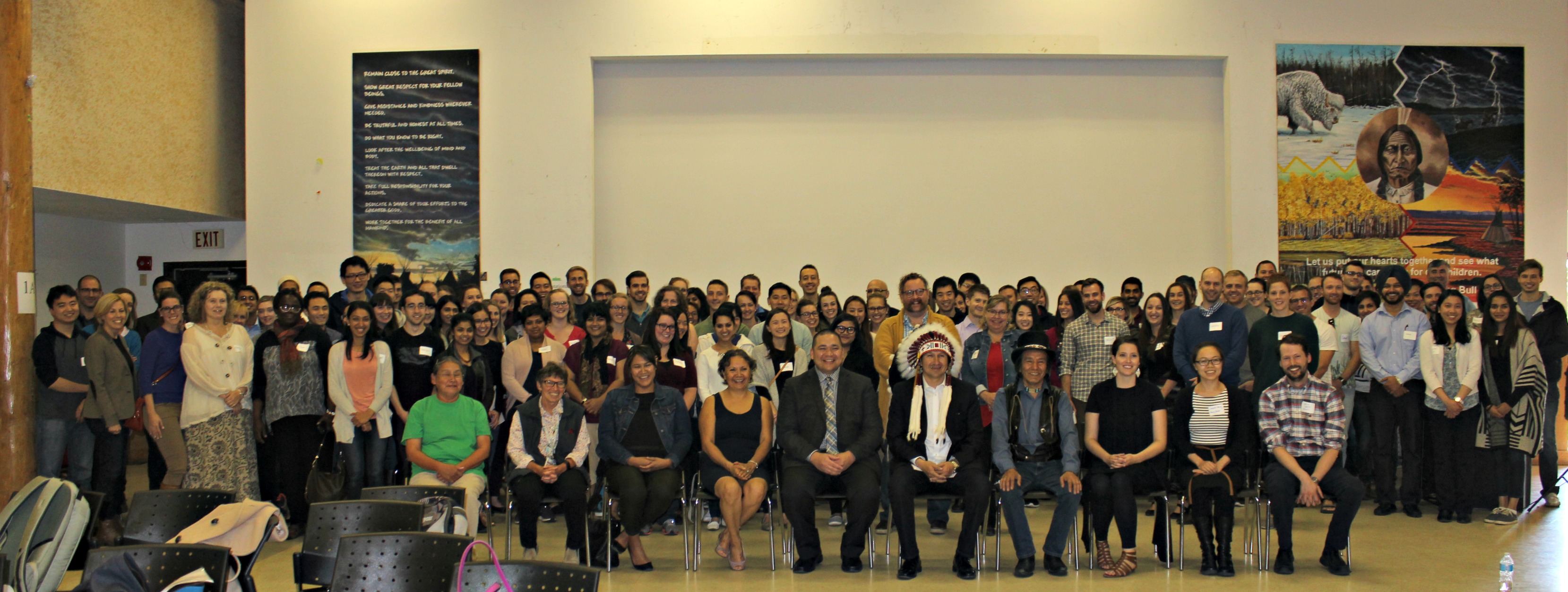
Chief Tony Alexis (centre) and Alika Lafontaine (left of centre) with community members and family medicine residents.
In September 2016, first- and second-year family medicine residents left their regular work and study environments within hospitals and clinics to spend a day at Alexis Nakota Sioux Nation. The young physicians were there to learn from the members themselves about the culture, health issues and barriers to health care faced by Indigenous communities. It was an opportunity for the trainees to be welcomed into a community, meet its members and be immersed in its culture.
Cara Bablitz, '07 BSc, '11 MD, was inspired to organize this event after working with the Indigenous Health Program to deliver primary care at the Alexis Nakota Sioux Nation. Her father, a Métis physician, has been a source of inspiration for her work to reduce health inequities.
"I feel it is important to educate students on health disparities among Indigenous people, who have alarmingly high rates of conditions such as depression, suicide, arthritis, obesity and diabetes," said Bablitz. "It was a great first step partnering with the Alexis Nakota Sioux Nation, a band invested in improving health outcomes, who enthusiastically worked with us to plan and host this event."
Throughout the day, residents heard from elders, community health-care workers, Indigenous physicians and community members. Outside of the formal presentations, they had time to connect with the community, including eating a traditional lunch prepared by its members.
Moving forward
One of the speakers was Alika Lafontaine, a U of A clinical lecturer and anesthesiologist based in Grande Prairie. He serves as a board member for First Nations University of Canada and as a collaborative team leader for the Indigenous Health Alliance. He sees the event as a positive step towards improving inclusivity in health care, but emphasizes it's only the beginning of what medical schools need to be doing.
"For patients dealing with ongoing chronic diseases and emergency situations, to come into a care situation and feel hostility, stereotyping and discrimination, that's not good enough," he said. "The things we train our students in are a reflection of what we think is important... . The impact that our medical schools can have in Indigenous communities in Alberta can be enormous."